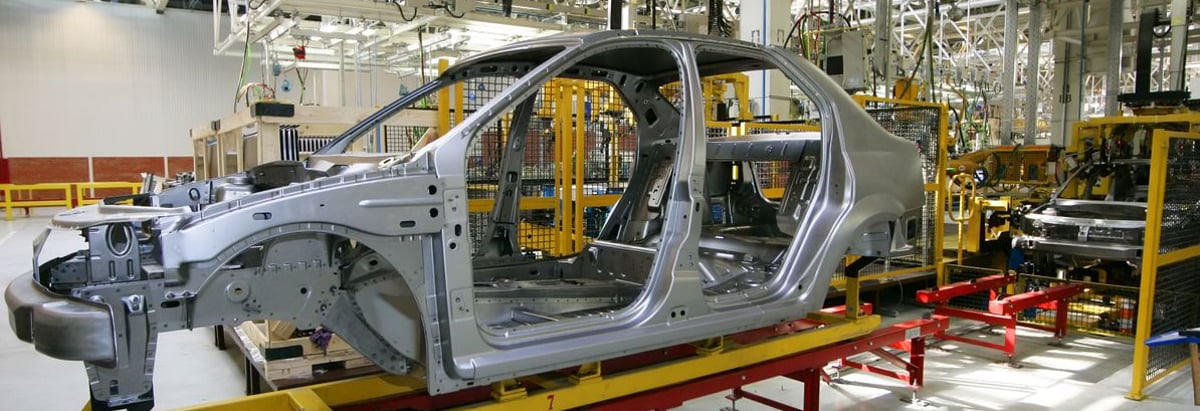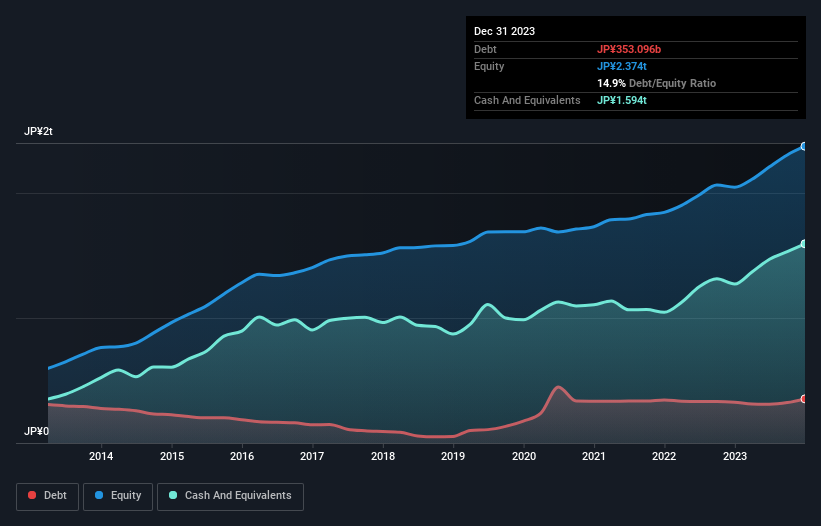
The external fund manager backed by Berkshire Hathaway's Charlie Munger, Li Lu, makes no bones about it when he says 'The biggest investment risk is not the volatility of prices, but whether you will suffer a permanent loss of capital.' So it seems the smart money knows that debt - which is usually involved in bankruptcies - is a very important factor, when you assess how risky a company is. We note that Subaru Corporation (TSE:7270) does have debt on its balance sheet. But should shareholders be worried about its use of debt?
What Risk Does Debt Bring?
Debt and other liabilities become risky for a business when it cannot easily fulfill those obligations, either with free cash flow or by raising capital at an attractive price. Part and parcel of capitalism is the process of 'creative destruction' where failed businesses are mercilessly liquidated by their bankers. However, a more frequent (but still costly) occurrence is where a company must issue shares at bargain-basement prices, permanently diluting shareholders, just to shore up its balance sheet. Of course, debt can be an important tool in businesses, particularly capital heavy businesses. The first step when considering a company's debt levels is to consider its cash and debt together.
View our latest analysis for Subaru
How Much Debt Does Subaru Carry?
You can click the graphic below for the historical numbers, but it shows that as of December 2023 Subaru had JP¥353.1b of debt, an increase on JP¥326.8b, over one year. However, it does have JP¥1.59t in cash offsetting this, leading to net cash of JP¥1.24t.

How Strong Is Subaru's Balance Sheet?
We can see from the most recent balance sheet that Subaru had liabilities of JP¥1.09t falling due within a year, and liabilities of JP¥895.2b due beyond that. Offsetting these obligations, it had cash of JP¥1.59t as well as receivables valued at JP¥378.3b due within 12 months. So its total liabilities are just about perfectly matched by its shorter-term, liquid assets.
This state of affairs indicates that Subaru's balance sheet looks quite solid, as its total liabilities are just about equal to its liquid assets. So it's very unlikely that the JP¥2.46t company is short on cash, but still worth keeping an eye on the balance sheet. While it does have liabilities worth noting, Subaru also has more cash than debt, so we're pretty confident it can manage its debt safely.
On top of that, Subaru grew its EBIT by 86% over the last twelve months, and that growth will make it easier to handle its debt. There's no doubt that we learn most about debt from the balance sheet. But ultimately the future profitability of the business will decide if Subaru can strengthen its balance sheet over time. So if you're focused on the future you can check out this free report showing analyst profit forecasts.
Finally, a company can only pay off debt with cold hard cash, not accounting profits. Subaru may have net cash on the balance sheet, but it is still interesting to look at how well the business converts its earnings before interest and tax (EBIT) to free cash flow, because that will influence both its need for, and its capacity to manage debt. During the last three years, Subaru generated free cash flow amounting to a very robust 84% of its EBIT, more than we'd expect. That positions it well to pay down debt if desirable to do so.
Summing Up
While it is always sensible to look at a company's total liabilities, it is very reassuring that Subaru has JP¥1.24t in net cash. The cherry on top was that in converted 84% of that EBIT to free cash flow, bringing in JP¥375b. So is Subaru's debt a risk? It doesn't seem so to us. The balance sheet is clearly the area to focus on when you are analysing debt. But ultimately, every company can contain risks that exist outside of the balance sheet. To that end, you should be aware of the 1 warning sign we've spotted with Subaru .
At the end of the day, it's often better to focus on companies that are free from net debt. You can access our special list of such companies (all with a track record of profit growth). It's free.
New: Manage All Your Stock Portfolios in One Place
We've created the ultimate portfolio companion for stock investors, and it's free.
• Connect an unlimited number of Portfolios and see your total in one currency
• Be alerted to new Warning Signs or Risks via email or mobile
• Track the Fair Value of your stocks
Have feedback on this article? Concerned about the content? Get in touch with us directly. Alternatively, email editorial-team (at) simplywallst.com.
This article by Simply Wall St is general in nature. We provide commentary based on historical data and analyst forecasts only using an unbiased methodology and our articles are not intended to be financial advice. It does not constitute a recommendation to buy or sell any stock, and does not take account of your objectives, or your financial situation. We aim to bring you long-term focused analysis driven by fundamental data. Note that our analysis may not factor in the latest price-sensitive company announcements or qualitative material. Simply Wall St has no position in any stocks mentioned.
About TSE:7270
Subaru
Manufactures and sells automobiles and aerospace products in Japan, rest of Asia, North America, Europe, and internationally.
Undervalued with excellent balance sheet and pays a dividend.


